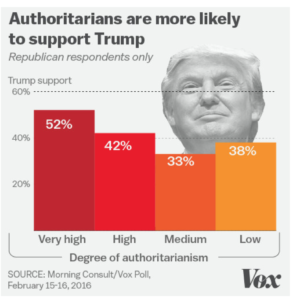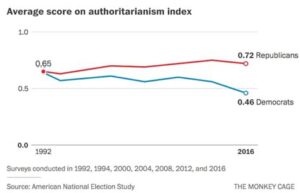Organizations, politics, the media, and even academic research reflect regression to favoring traditional masculinity, and in some cases toxic masculinity.
In an article titled “The Era of Happy Tech Workers Is Over,” in the New York Times, Nadia Rawlinson, former Chief People Officer at Slack, says, “Silicon Valley as we know it — with its radically transparent company cultures, empowered employees, flat hierarchies and rarefied perks like nap pods and free food — is quickly disappearing. And it’s unlikely to return.”
She argues, “For nearly two decades, tech companies heralded an approach that centered on making workers happy with benefits intended to seamlessly integrate work and life. They made well-being programs and unlimited vacations, initiatives that prioritized the whole person, and standard employee benefits. This, along with high salaries and equity packages, was a way to win and dominate the war for talent. Silicon Valley companies’ rapid growth and success, driven in part by their unique people practices, reimagined workplace culture for a generation.”
However, Rawlinson says, things are changing. Economic conditions have been less favorable to tech’s fantastic growth, and we’ve seen waves of recent layoffs from companies such as Google, Twitter, Microsoft and Meta. A return to hard bottom-line financial results seems to be the order of the day, even though it is at the expense of positive work cultures.
And some companies, such as Meta and Amazon have begun using a “stack ranking” for employees, a controversial approach to performance reviews popularized by Jack Welch, and called the “rank-and-yank” system. This approach has long been criticized as ineffective.
Rawlinson argues that “Executives across industries are leaning into their newfound bossism and ending pandemic-era work arrangements and incentives. Reed Hastings, Netflix’s co-founder and co-C.E.O., said near the start of the pandemic that he didn’t “see any positives” in working from home, and the company allows only some remote work. TikTok reportedly told employees that it was sunsetting gym membership and Wi-Fi reimbursements as well as its $45 daily meal stipends to workers not tied to the company’s main hubs, in its efforts at restraint. These changes are bellwethers.”
Academic Backsliding
In academic backsliding, there have been several studies almost advocating a management style that resembles the traditional authoritarian approach, countering the years of leadership research showing how leaders who have emotional intelligence, are compassionate and empathetic and dedicated to service are superior.
For example, a new study by Agata Mirowska, Raymond Chiu and Rick Hacket study published in the Journal of Business Ethics argues that people like their leaders to be rough and ruthless. The researchers surveyed 1100 North American adults.
“Leaders who have negative antisocial traits still seem to be attractive to followers,” explains Mirowska.
The researchers describe the characteristics of tyrannical leaders as being domineering, manipulative, conceited, selfish, loud and aggressive.
“These traits may seem anathema to the traits of good everyday supervisors and executives, but if one takes a moment to consider the global figures that capture the imagination of millions in disruptive industries, entertainment, sport, and ultra-conservative politics, these traits are quite prescient,” says Mirowska.
The researchers claim concluded that the willingness of people to support or favor a tyrannical leader may be due to their upbringing, beliefs and life experiences, but perhaps more importantly because they believe that the world is a dangerous place and they need someone to provide strong protective leadership.
Similarly, a new study from consultants Life Meets Works, dashes that hope when it comes to toxic bosses. Not only do they not meet swift punishment, the results show, but their bullying behavior is often rewardedwith increased employee engagement.
When Life Meets Work surveyed 1,000 college-educated U.S. employees they found a whopping 56 percent of respondents described their boss as toxic. How is it possible that so many jerks have thrived and risen in their companies? Maybe it’s because employees of managers who display more toxic behaviors like belittling employees work harder than well-treated workers.
That’s infuriating, but it’s pretty much what the survey revealed. “People who work for highly toxic bosses–managers with more than a handful of bullying or undermining behaviors–tend to be more engaged in their work than other employees,” the Wall Street Journal’s Vanessa Fuhrmans reported.
Many people have found themselves working for a nightmare boss at some point, and according to a 2015 Gallup study of 7,200 U.S. adults, half of the workers have left at least one job because of a bad manager. But the 2019 Life Meets Work survey suggests working for an abusive or dysfunctional supervisor is even more commonplace: Among those polled, 56% described their current manager as toxic.
Employees at companies with highly competitive, win-or-die cultures were more likely to report working for a toxic boss, according to the study. Wouldn’t that describe the majority of tech and Wall Street companies?
While many workers are overwhelmed and exhausted toiling through a pandemic, that is not the case for the majority of company leaders.
According to Microsoft’s newly released Work Trend Index survey, 61% of business leaders say they’re “thriving” right now, while only 38% of workers without decision-making authority say the same.
The survey shows a wide disconnect between these business leaders who are thriving in established careers and younger workers. Sixty percent of respondents between the ages of 18 and 25 said they are merely surviving or are struggling right now at work.
The Attraction of Authoritarianism
A Vox-Morning Consult survey found that just under half of White American respondents scored high on measures of the authoritarian personality, a proxy for authoritarian voting. Nearly 1 in 5 scored very high. Of these authoritarians lurking among us, nearly 7 in 10 were self-identified Republican voters. And for them, Trump was a godsend.

Marc Hetherington, a political scientist at Vanderbilt University, and Jonathan Weiler, a professor of global studies at the University of North Carolina at Chapel Hill, discovered the Republican leanings of authoritarian voters before Trump did. Back in 2009, they argued that Republicans had positioned themselves as the defenders of cultural order and traditional values, which had the unanticipated consequence of attracting a lot of authoritarian voters to their ranks. Trump just tapped into them in a way that nobody had before.
Yet, all too sadly, the proponents of autocratic governance did anything but disappear. In the 21st century, their efforts are manifest in the governing style and ethos of the Republican Party, its base, and the extremist organizations that go with it, as well as the far-right media, think tanks, and foundations that accompany them. At every level, from local school boards and city councils to Congress and the White House, authoritarianism and its obligatory racism continue to drive the GOP political agenda.

In my article, “Rising Authoritarianism and Toxic Masculinity in American Politics,” I describe how authoritarianism and traditional masculine stereotypes are still alive and well in America.
Kirk Swearingen, writing in Salon about toxic masculinity in the Republican Party comments: “This hyper-focus on anything and everything sexual extends to the right’s self-proclaimed tough guys, the seeming adults who so much enjoy playing dress-up.
As historian Ruth Ben-Ghiat noted in an article for the Atlantic: “Illiberal political solutions tend to take hold when increased gender equity and emancipation spark anxieties about male authority and status. Conquest-without-consequences masculinity, posing as a ‘return to traditional values,’ tracks with authoritarianism’s rise and parallels the discarding of the rule of law and accountability in politics.”
Jennifer Rubin also wrote a blunt editorial in the Washington Post which argued amongst other things:
- “In their head-spinning transition from apologists for Russian President Vladimir Putin to proponents of World War III, Republicans reveal not only their utter lack of principle but also their obsession with toxic masculinity. Winston Churchill’s favored saying ‘The Hun is always either at your throat or your feet’ neatly sums up the Republicans’ abrupt shift . . . “Both expressions of wish fulfillment — admiring Russian ruthlessness and going to war — are features of a party in constant need of masculine affirmation.”
- “This is not a new phenomenon. As the saying went during Trump’s administration, cruelty — or the raw assertion of power over the powerless — was the point. It still is. Whether they are separating children from parents, spying on and infringing on women who do not want to be compelled to complete their pregnancy, or threatening to take away transgender children whose parents seek appropriate medical care, manliness manifesting as bullying has been the Republicans’ defining feature of late.”
- “And they’re using the full force of the state to impose their will. All to enforce the frantic assertion — as Sen. Rick Scott (R-Fla.) laid out in a ludicrous 11-point platform — that ‘men are men, women are women.’ Does anyone remember a national party running on such a naked appeal to masculine insecurity?”
Rubin noted that following the Capitol insurrection, Senator Josh Hawley (R-Missouri) went on to “sell a mug depicting his fist pump to the Jan. 6 mob,” and “his speech decrying that ‘traditional masculine virtues‘ are under attack illustrated precisely how masculine insecurity masquerades as manliness.” She added “Declaring that the left has been systematically destroying masculinity and Republicans will stage a ‘revival of strong and healthy manhood in America‘ might sound comical. But in today’s GOP, this is red meat for the MAGA crowd.”
As an indication of the Republican Party’s focus on masculinity, The Public Religion Research Institute’s 2020 values survey found, ‘Majorities of Republicans agree with both the statement that society punishes men just for acting like men (60% agree) and that society has become too soft and feminine (63% agree).’”
The video that Representative Paul Gosar of Arizona, shows Gosar saving the nation, attacking President Biden with swords and killing Democratic Representative Alexandria Ocasio-Cortez. Democrats called for Gosar’s expulsion from Congress and passed a measure to formally censure him. In contrast, GOP leader Kevin McCarthy said nothing.
Ben-Ghat writes about how authoritarianism has evolved over the past century, from traditional dictatorships to electoral autocracies. She says: “Yet at least one constant remains: Illiberal political solutions tend to take hold when increased gender equity and emancipation spark anxieties about male authority and status. Conquest-without-consequences masculinity, posing as a ‘return to traditional values,’ tracks with authoritarianism’s rise and parallels the discarding of the rule of law and accountability in politics. We commonly associate autocracy with state restrictions on behavior, but the removal of checks on actions deemed unethical in democratic contexts (lying, thievery, even rape and murder) is equally important to its operation and appeal.”
She argues that “ it’s unsurprising to see a culture of lawless masculinity developing within the GOP, which adopted an authoritarian political culture during the Trump years. Renouncing democratic norms, the Republicans have normalized disinformation, election subversion, and violence as a means of governance, as expressed in their support for the January 6 coup attempt and the fiction that Donald Trump, not Joe Biden, won the 2020 election.”
Former Republican Representative Madison Cawthorn of North Carolina, in a video, called on mothers to raise their sons to be “monsters.” Today’s culture, Cawthorn said, is trying to “emasculate” all young men “because they don’t want people who are going to stand up.” Unsuccessful Ohio Republican Senate candidate J.D. Vance sounded similar themes in a series of tweets in which he defended Kyle Rittenhouse, the 18-year-old who was acquitted of all charges in the shootings of three men in the aftermath of demonstrations in Kenosha, Wisconsin.
FOX News Fanning the Flames
When a trailer for “The End of Men” episode of Fox News host Tucker Carlson’s “Tucker Carlson Originals” showed shirtless men swinging axes, wrestling and shooting guns. When more clips previewing the episode showed Carlson promoting the “homeopathy” therapy “testicle tanning,” he was further ridiculed and roasted by late-night hosts. But experts in masculinity and extremism say while promotion around Carlson’s program may appear ridiculous, it’s elevating dangerous propaganda.
“He and his writers are seeking to exploit a popular line of discourse on the far-right fringe that mainstream audiences may not be aware of,” said Michael Edison Hayden, a senior investigative reporter with the Southern Poverty Law Center’s Intelligence Project, which tracks the radical right. “It’s this hyper-masculinized propaganda that speaks to people who admire the notion of ‘men returning to men.’”
Pasha Dashtgard, director of research at American University’s Polarization and Extremism Research and Innovation Lab. “This platforming by Tucker Carlson is happening because it falls into this narrative that there is a crisis of masculinity, that cancel culture and wokeness have emasculated men in America. Now conservative politics is pushing the narrative of recapturing the strong protector, fighter, testosterone-fueled American man. These ideas that on the surface feel ridiculous are being used to justify a pretty ugly conspiratorial narrative.”
The Evangelical Connection
According to historian Kristin Kobes Du Mez, author of Jesus and John Wayne: How White Evangelicals Corrupted a Faith and Fractured a Nation, about how the model of masculinity in evangelicalism has gone from emulating the qualities of Jesus to emulating those of the actor John Wayne, and this evolution has shaped culture and politics. Hawley, Vance and Cawthorn all have deep ties to evangelical Christianity and frequently reference the importance of faith in their lives and, especially for Cawthorn and Hawley, in their political philosophies.
A Public Religion Research Institute American Values Survey came out recently. In that survey, we see that 60 percent of white evangelicals believe the election was stolen. Of those, 39 percent believe that violence might be necessary to save the country.
The New Kind of Leader
We’ve witnessed both in research and in practice the growing evidence that the most effective leaders are emotionally intelligent, care about their employees and support the ESG concepts (Environmental, Social and Governance) which mean investing based on a set of standards for a company’s behavior used by socially conscious investors to screen potential investments.
These leaders, exemplified by New Zealand’s Prime Minister Jacinda Ardern, acted in ways that promoted social and environmental good.
Having said that, the current world chaos reflected in climate change, political upheavals and economic problems put pressure on the general public to gravitate back to traditional authoritarian or narcissistic leadership styles (examples are America’s Donald Trump and Brazil’s Jair Bolsonaro).
Toxic Leadership Has Not Left Us
There is a growing incidence of toxic leadership in organizations across the world. This is clear from anecdotal evidence as well as research which suggests that one out of every five leaders is toxic. Research by business professor Theo Veldsman shows that closer to three out of every ten leaders are toxic.
This cancer of toxicity threatens the well-being of both individuals and organizations. It also affects the performance of a society and country.
A new study shows that most abusive bosses care more about their social image than actually changing how they act. Using anonymous self-reported surveys with bosses across a range of industries, the researchers asked about behaviors and motives. Based on their findings, they conclude that toxic bosses are not likely to change their ways, and they warn employees and company leaders that give bosses a pass when they abuse employees but act nice afterwards. Doing so may end up reinforcing the cycle of mistreatment that pervades many companies.
The enduring presence of toxic, authoritarian bosses prompted me to write two books. The first, Toxic Bosses examined the prevalence and characteristics of toxic bosses in organizations and what we can do about it. The second and more recent book, Virtuous Leadership, was a call for organizations to focus on the keys to great leadership and positive organizational cultures—virtuous behavior and good character, with suggestions on how we can do that.
Final Thoughts
There is a real danger in turning back the clock to revitalize the dying model of authoritarian and toxic leadership in our organizations and institutions, a danger that could result in corrosive corporate and government cultures that harm both people and the environment, if not democracy itself. All of us must reject any return to a traditional management style that belongs in the trash heap of history.


